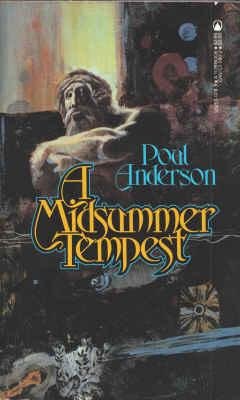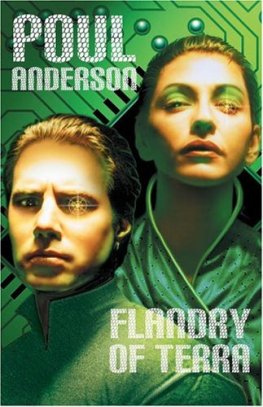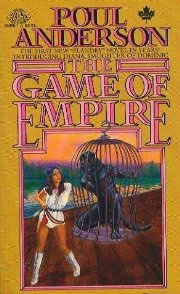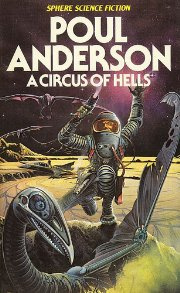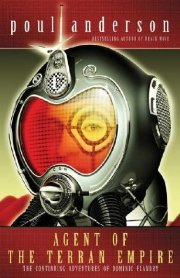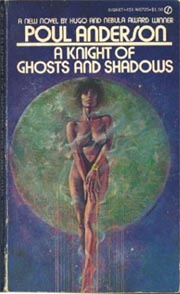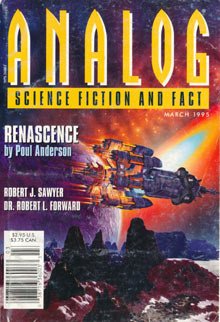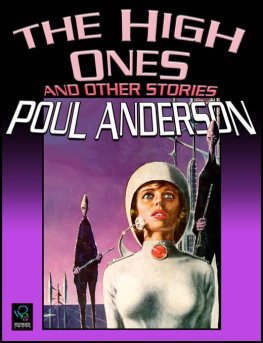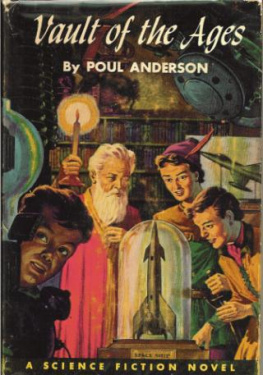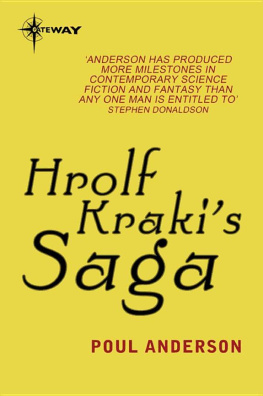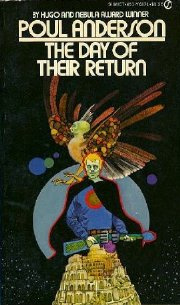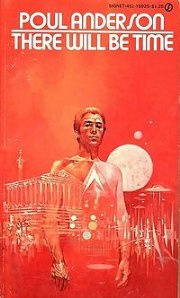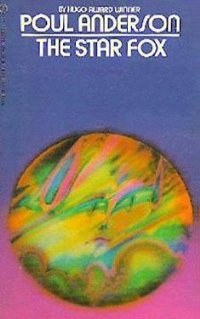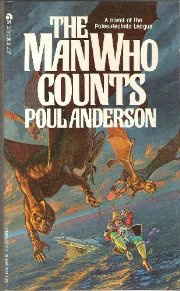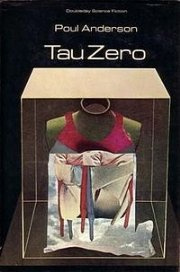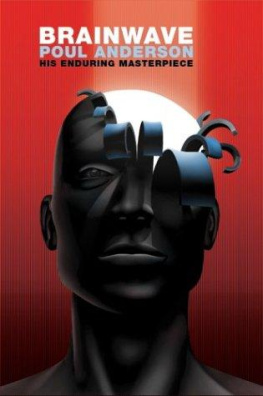Poul Anderson - The Merman's Children
Here you can read online Poul Anderson - The Merman's Children full text of the book (entire story) in english for free. Download pdf and epub, get meaning, cover and reviews about this ebook. genre: Science fiction. Description of the work, (preface) as well as reviews are available. Best literature library LitArk.com created for fans of good reading and offers a wide selection of genres:
Romance novel
Science fiction
Adventure
Detective
Science
History
Home and family
Prose
Art
Politics
Computer
Non-fiction
Religion
Business
Children
Humor
Choose a favorite category and find really read worthwhile books. Enjoy immersion in the world of imagination, feel the emotions of the characters or learn something new for yourself, make an fascinating discovery.

- Book:The Merman's Children
- Author:
- Genre:
- Rating:3 / 5
- Favourites:Add to favourites
- Your mark:
- 60
- 1
- 2
- 3
- 4
- 5
The Merman's Children: summary, description and annotation
We offer to read an annotation, description, summary or preface (depends on what the author of the book "The Merman's Children" wrote himself). If you haven't found the necessary information about the book — write in the comments, we will try to find it.
The Merman's Children — read online for free the complete book (whole text) full work
Below is the text of the book, divided by pages. System saving the place of the last page read, allows you to conveniently read the book "The Merman's Children" online for free, without having to search again every time where you left off. Put a bookmark, and you can go to the page where you finished reading at any time.
Font size:
Interval:
Bookmark:
Poul Anderson
The Mermans Children
Prologue
The coast of Dalmatia rises steeply. A bare league inland, Shibenik town stands high on a hill above the river Krka and sees mountain peaks in the east. Here the water forms a broad basin, which narrows as it moves on to the sea. Upstream, however, it tumbles in ringing cascades out of the lake which it and others have made.
In the days when the Angevin Charles Robert became boy-king of Croats and Magyars, the land along those falls was mostly wildwood. Likewise it was around much of the lake, save where the Krka empties into this. There folk had long since cleared it and laid it under the plow. A little farther up the river, about where the Chikola flows into it, Skradin village clustered by the stronghold of its lord, the zhupan.
Nevertheless, even within castle walls, the wilderness came a-haunting. Not only might one hear wolves howl by night and jackals bark by day, or have ones fields raided by deer and wild boar, or glimpse the horned mightiness of elk and aurochs. Uncanny beings dwelt yonderLeshy among the trees, a vodianoi in the deeps and lately, it was whispered, a vilja.
Ivan Subitj, zhupan, paid scant heed to such talk among his serfs. He was a stark man, though just, near kin to the great Ban Pavle and thus aware of a larger world than theirs. Moreover, he had spent years outside, many of them in the wars that hardened and scarred him.
Nor did his eldest son Mihajlo fear woodland bogies. Indeed, this youth had well-nigh forgotten whatever legends he heard early in life: for he had been educated at the abbey in Shibenik, had traveled to the bustling ports of Zadar and Split and once across the narrow sea to Italy. For his part, he wanted wealth and fame, escape from the changelessness wherein he had passed his childhood. To that end, with Ivans help, he attached himself to the retinue of Pavle Subitj the kingmaker. Just the same, he remained fond of his home country and often visited Skradin. There they knew him as a merry soul, kindhearted if occasionally thoughtless, who brought with him color, song, and vivid stories from beyond their horizon. On a certain morn in a new summer, Mihajlo left the castle to go hunting. Half a dozen fellows accompanied him. Three were guards and body servants who had come along from Shibenik. Peace prevailed for the moment, both with the Venetians and among the powerful clans; and Ivan Subitj had beheaded the last bandit in these parts several years ago. Still, few men ventured far alone, and no women. The rest of those with Mihajlo as he rode forth were his younger brother Luka and two free peasants who would be guides and do the rough work. A pack of hounds trotted behind.
The party made a brave sight. Mihajlo was clad in the latest Western fashion, green doublet and hose, saffron shirt, silk-lined cape, Cordovan half-boots and gauntlets, flat velvet cap on long brown curls, face clean-shaven. A hanger slapped at his waist whenever his horse grew frolicsome. He sat the beast as if they were one. His own attendants were hardly less gaudy; their spearheads flashed aloft. Luka was in much the same knee-length coat, over tunic and cross-gaitered breeches, as the peasants; his garb was simply of better stuff, with finer embroidery along sleeves and hem, his brimless conical hat trimmed with sable while theirs had rabbit fur. He and they alike bore short, recurved bows, as well as knives of a size to cope with bear.
Hoofs racketed in the street, thudded on paths beyond. Unlike Frankish lords, those who were Croatian generally respected their underlings; had Mihajlo ridden across the tender green of croplands, he would have answered to his father. Passing a meadow, he did frighten a few calves with a joyful blast on his horn, but rail fences kept them from bolting.
Presently he was in the woods, on a game trail. This was mingled oak and beech forest, soaring boles, over-arching boughs, murmurous leaves, shadowy vaults and reaches where sunlight struck through in flecks and speckles, the hue of gold. Birdsong sounded remote and hushed against the quiet that brooded here. The air was warm, yet carried an edge, and full of odors that had naught to do with house or byre.
The hounds caught a scent. Their clamor awoke. In the next hours the men took a stag, a wolf, a brace of badger; a wild sow eluded them, but they remained well content. Reaching the lake, they startled a flock of swans, let fly their arrows, brought down three. They thought they might return home.
That happened which God allowed.
Another stag trod onto the shore, a hundred yards from them. Late afternoon sunbeams washed aureate and blue-shadowed across him, for he was white, well-nigh the stature of an elk. Already his growing antlers made a tree athwart heaven.
By every saint! shouted Mihajlo, and soared to his feet. A pair of shafts missed the deer, which waited until the men were in the saddle again. Thereafter he fled them. Yet he did not seek thick brush where horses could not follow. He stayed on the trails, ever glimmering in dimness. Vainly, the chase hallooed after. Back and forth he led his pursuers, up and down, round and about, while time waned. The mounts were blown, the dogs gasping, when at last he came back to the lake.
Timber gloomed above its gleam. The sun had sunk and left only a smear of sulfur on western blue. Eastward was purple, swiftly darkening; a star trembled forth. Mist lay in streamers. Bats flitted on high. It was turning cold. Silence filled everything that was.
Like a patch of fog, the crowned animal shivered and was gone.
Mihajlo choked on an oath. Luka crossed himself over and over, as did the servants. Both peasants sprang from their stirrups, down onto their knees, whipped off their hats, and prayed aloud.
We have been lured, mumbled Sisko, the senior of them.
By who and for what?
Let us begone, in Gods name, begged his friend Drazha.
No, hold. Mihajlo rallied his courage. Our steeds must rest. We could kill them if we push right on. You know that.
Would you, you spend the night here? stammered Luka.
An hour or two, till the moon rises and we can find our way, Mihajlo said.
An attendant of his stared across the quicksilver above the depths, at a ragged murk of foliage beyond, and protested, Sir, this is no place for Christians. Old heathen things are abroad. That was no buck we hunted, it was the very wind, and now it has vanished to wherever the wind goes. Why?
What, and you a city man? Mihajlo gibed. Our senses failed us, thats all. Not surprising, weary as we are. He peered through the dusk at their faces. There is no place on earth which is not for Christians, if they have faith, he said. Come, let us call on our saints. How then can devils harm us?
Weakly heartened, they dismounted if they had not already done so, prayed together, unsaddled their beasts, began to rub these down with the cloths. More stars appeared in deepening twilight.
Mihajlos laughter rattled through the stillness. Do you see? We had no need of fear.
No, never, sang a girls voice. Is it really you, my dearest?
He turned and beheld her. Though he and his companions had become blurs among shadows, she stood forth almost clearly, where she came out of the reeds onto land. Her nakedness and the unbound hair were that pale, her eyes that huge and bright. She neared him, arms held wide.
Jesus and Mary, save us, moaned Drazha at his back. It is the vilja.
Mihajlo, she cried low, Mihajlo, forgive me, I am trying to remember, I truly am.
Somehow he stood his ground, there on the wet lakeside in the gloaming. Who are you? he uttered through the earthquake in his breast. What do you want of me?
The vilja, Sisko quavered. Demon, ghost. Pray it away, men, before it draws us down to its watery hell.
Font size:
Interval:
Bookmark:
Similar books «The Merman's Children»
Look at similar books to The Merman's Children. We have selected literature similar in name and meaning in the hope of providing readers with more options to find new, interesting, not yet read works.
Discussion, reviews of the book The Merman's Children and just readers' own opinions. Leave your comments, write what you think about the work, its meaning or the main characters. Specify what exactly you liked and what you didn't like, and why you think so.

